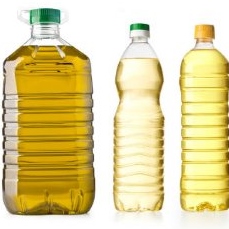
Parshot/Festivals

The miracle of Chanukah and nutrition
AMIR LAUFERT
As a nutritional scientist, it is my duty to understand the research and separate fact from fiction. When it comes to basic nutrition, there are some fundamental aspects which form the foundation of a good diet and that have held true for centuries. With Chanukah around the corner, it seems fit to talk about one of the foundations of nutrition, being fats and oils with the miracle of Chanukah and Judaism.
In relation to Chanukah, once the royal Hasmonean family was victorious over the Greeks, only one sealed oil flask was found, enough to light the menorah for a single day. A miracle occurred, and they lit the menorah with this oil for eight days.
Olive oil has also formed part of Middle Eastern diet and Jewish religion for many years. In fact, within Jewish learning, olive oil corresponds to yesod (foundation). Rabbi Moses ben Maimon (Maimonides) explains that olive oil cleanses the liver and loosens stools.
Furthermore, ancient Jewish scholars were believed to drink a teaspoon of olive oil every morning before eating, to help keep the urinary tract healthy. With the connection of olive oil and Judaism, maybe there is a lesson embedded for us to learn from? Let’s take a deeper look into the macronutrient that olive oils falls under – fats.
In nutrition, oils (including olive oil) are almost 100 per cent fats. Here is some information on fats:
Fats: You either love them or hate them, but we all need them!
Fats are essential to life and the proper functioning of the body. Nutrition experts commonly classify dietary fat as either saturated “bad”, monounsaturated, or polyunsaturated “good”, I’m sure you are familiar with these words too.
A simple way to differentiate between them: Saturated fats will be solid at room temperature whereas unsaturated fats will be liquid. Simple, right? Fats are required to produce and build new cells. Now that’s pretty important, but wait, they are also a source of energy and are critical in the transmission of nerve impulses, brain function and development. They are also involved in the production of other essential molecules such as hormones.
So, fats pretty much keep everything in our bodies in proper working order. It is like the oil for a car.
Now, before you go back to drinking olive oil by the glass, remember this: fats contain nine calories per gram, carbohydrates for example contain four calories per gram. So, 30g of fat has 270 calories whise 30g of carbohydrates has 120 calories.
Fun facts about fats
– The majority of foods that are naturally high in fat, come loaded with a copious amount of vitamins, minerals and essential fatty acids. Fats are also a great source of energy for the body and if eaten in the right amounts can help you to achieve fat loss.
– The average person carries about 80 000 to 120 000 calories of fat on their bodies!
– Fifty billion. The number of fat cells in most adults. We reach maximum capacity around puberty however, fat cells have the ability to grow 10 times their original size to accommodate for excess storage and once full, our bodies have the ability to create more, but once a fat cell is created, it can never be removed completely, only emptied and left dormant.
– Fat cells in the body live for up to 10 years and when they die they are replaced with a new one right away. About 140 fat cells die every second!
– Females use fat cells to store the hormone oestrogen, making fat loss more technical.
(Extracted from my E-book called Limit-Less)
Cooking with olive oil
Olive oil is well-known for its heart healthy effects. However is it still healthy when we use it in cooking?
The short answer is, yes! Olive oil is fairly resistant to heat, meaning that if you use it in moderation to lightly sauté or otherwise cook your food before reaching the smoke point (375 – 405°F), it is still safe to cook with.
To ensure that you are receiving the most bang for your buck, choose extra virgin olive oil as it has much more nutrients and antioxidants than the refined type. Plus, it tastes much better.
A tip: Keep your olive oil in a cool, dry, dark place, to prevent it from going rancid.





Phyllis
December 12, 2017 at 3:23 am
‘Nice article, would love to hear more from you, about natural healing foods. Thanks.’